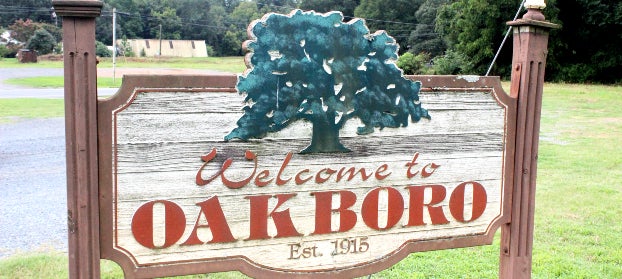OUR VIEW: Dear Earth, we need you
Published 10:09 am Saturday, April 25, 2020
|
Getting your Trinity Audio player ready...
|
The Earth continues to amaze us.
Wednesday marked the 50th anniversary of Earth Day.
Much has happened in 50 years. Some of the first 10 years of Earth Day was chronicled in the editorial below from the April 22, 1980 edition of The Stanly News & Press. Following it, we will take a look at more recent events.
“April 22, 1980, is the tenth anniversary of the first Earth Day. The last decade has been highlighted by growing awareness and concern from all quarters about the condition and future prospects of man in the natural world. Discussions of energy, environment, human health and resource conservation occur daily in private conversations, government deliberations and news media reports.
“The strength of a civilization may be measured by how well it safeguards its public health and natural resources. Throughout history progress has been reflected in increased attention to public water supplies, waste disposal and food sanitation. This, in turn, has improved the health and life span of individuals and the quality of their lives. The environmental issues for Earth Day 1980 are another chapter in the ongoing story of civilization and its efforts to protect the people and the planet on which it is based. The challenges of the ’80s are greater than those of the earlier years because the populations of the nation and the work are much larger and scientific and industrial advancements have created more complex by-products.
“Increased public concern has arisen from the realization that our advanced society has placed special stresses on the world and its resources. Through the media, people have seen and heard for themselves the realities of Love Canal, air pollution episodes and rivers on fire. These incidents have occurred, for the most part, in the heavily industrialized Northeast, but North Carolinians have seen enough of these examples to recognize the seriousness of the issues.
“Our work is sustained by air, water and land. Failure to protect any of these elements may lead to serious harm for the people, animals and plants which rely on environmental quality for survival.
“Pollution results when more waste is given off than the environment can absorb without harm. Natural systems are flexible and can absorb a great deal of waste. However, in the ’60s and ’70s the wastes from our energy consumption and our industrial and agricultural processes began to outstrip the earth’s ability to absorb them without harm.
“North Carolina has been twice blessed. The first blessing was tremendous natural resources and great natural beauty, and the second was a rural heritage which spread populations evenly and instilled a respect for the land. As the state grows and progresses, these values will become essential to preserving the beauty of the land and the quality of life.
“So, what are the solutions to these problems? Public concern has been evidenced in landmark state and federal legislation concerning air, water, drinking water, solid/hazardous waste and resource recovery which were passed in the ’70s. The decade of the eighties will see this legislation become operational. There will be some costs and inconvenience associated with these acts and the changes they require. There will be choices to be made by North Carolinians as both citizens and consumers.
“During the 1980s our civilization must face and overcome these most recent challenges to our natural resources and public health.”
The 40 years that followed 1980 did not do any of us any favors in helping human life.
We have had wars, terrorist attacks, space shuttle explosions, the Chernobyl nuclear disaster.
We had the summer of 2007 when temperatures were reported to have reached 109 degrees in Stanly County. There have been other heat waves, but that one was really memorable. We’ve also had great snowfalls in the county and massive blizzards up north.
The last year we have witnessed horrific wildfires in Australia. Just this week, the U.S. has had snowstorms, an earthquake and tornadoes, all in the middle of a pandemic unlike any other in the last 102 years.
During this pandemic, stay-at-home orders have revealed city skylines, mountain views of the Himalayas and stunning ocean water that is not visible during our busy lives.
We have to work together to survive. That is something that is even more true during this COVID-19 pandemic than most of us have ever known. A virus spread through the air so casually, with symptoms often not shown.
Maybe the earth is trying to tell us something.
It is time we started using common sense and began caring more about the world as a whole. Some of us litter too much. Some of us do not recycle enough.
We need the earth. It does not need us.





